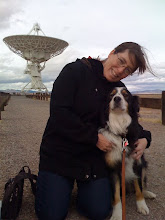I have the pleasure of teaching Honors 1500 in the fall. This is 'Perspectives in Physical Science', which means it can be pretty much anything I want. The last time I taught it, I did cosmology. Sure, I could do that again, but why? Just 'cause it's easier? I SCOFF at the notion.
My first thought was to do the environmental physics class I've been working on, with a slightly more policy-oriented focus, but I think that will just mess up my head for the later course. Besides. This is a chance to bust out and take a risk and do whatever. So then I had this idea: Physics @ Home. Not standard physics experiments in your house, but the physics OF your house. Physics of cooking, physics of cleaning, physics of heating, cooling, electricity, etc.
So, I can't be the only one who's ever had this idea, right? So I went looking to see what's out there in the world of books. Amazon turns up several, the most recent published in 1946. There IS a Science of Cooking book---I have this in my library at home, and have enjoyed it immensely. But nothing about the other topics at this level (although I've pinged my most edu-alert colleague to see what he knows). There's a Physics of Everyday Phenomena, but this is not quite the topical thing that I'm seeking---too many airplanes, not enough vacuum cleaners.
Please note that even GOOGLE (!) turns up zippo on the subject. GOOGLE! Crazy talk. I did a couple of specific searches, some of which turned up valuable info. Most of them did not. There's a physics of the microwave oven, for example. Which seems to mostly consist of lighting things on fire or exploding them. Very little on standing waves...
So this has got me wondering. Is this an idea whose time has come around again? Was the whole idea dropped because no one thought it was interesting? Because physicists traditionally have stay-at-home spouses? Because we've thoroughly divorced our lives from our work, and never the twain shall meet? Or because it seems too girly? Because we stopped teaching home-ec?
But what about the stay-at-home dad? Surely he wants to know why only egg whites beat up into that incredible froth? And why it falls if there's even a teeny bit of yolk? And why is a copper pan better anyway? Right? Or why is it so flippin' hard to get beef juice out of a pan, but not burned on veggies? Or how does low-e glass work? Right? Or why water makes that cool shape coming out of the faucet, almost always with a twist in it---where does the twist come from? And why is the sprayer attachment so much better at getting gunk off the sink? And what's the deal with teflon anyway? And why does the smoke go up the chimney instead of into the house? And why does soap work? And what does a GFCI do, and why do I need one in the bathroom? And why are CFLs loaded with mercury, and how do they actually save energy? And how does the water get up the corn stalk in the garden anyhow? And when I siphon out my fish tank, how does that work? And what's up with water levels?
Oh! Or the physics of beer, hello! I KNOW some people are interested in this topic!
Doesn't everyone want to know these things? I mean, Alton Brown! Right? That's a whole show devoted to this science in the kitchen.
And then I was wondering why we are surprised that there aren't more women in physics. Nobody talks about the physics of your oven. What's up with that? I don't mean to say that it's all women would be interested in, although I realize it sounds that way! But ovens are something everyone should be interested in. Right? Absolute, supreme utility---the oven. I've read studies that show that women are interested in biology because they see the utility. Conversely, they lose interest in physics because they perceive it to be non-utilitarian. Not helpful. Not useful. But all the chicks I know (and lots of men) love Alton Brown. And that makes me wonder.
Oh. I am so excited to go back to the classroom, where anything can happen...
Subscribe to:
Post Comments (Atom)

No comments:
Post a Comment